Removing Centralisation from Crypto
Decred has developed software to remove centralised entities. Demonstrating a commitment to making tough decisions and having the technical ability to successfully follow through.
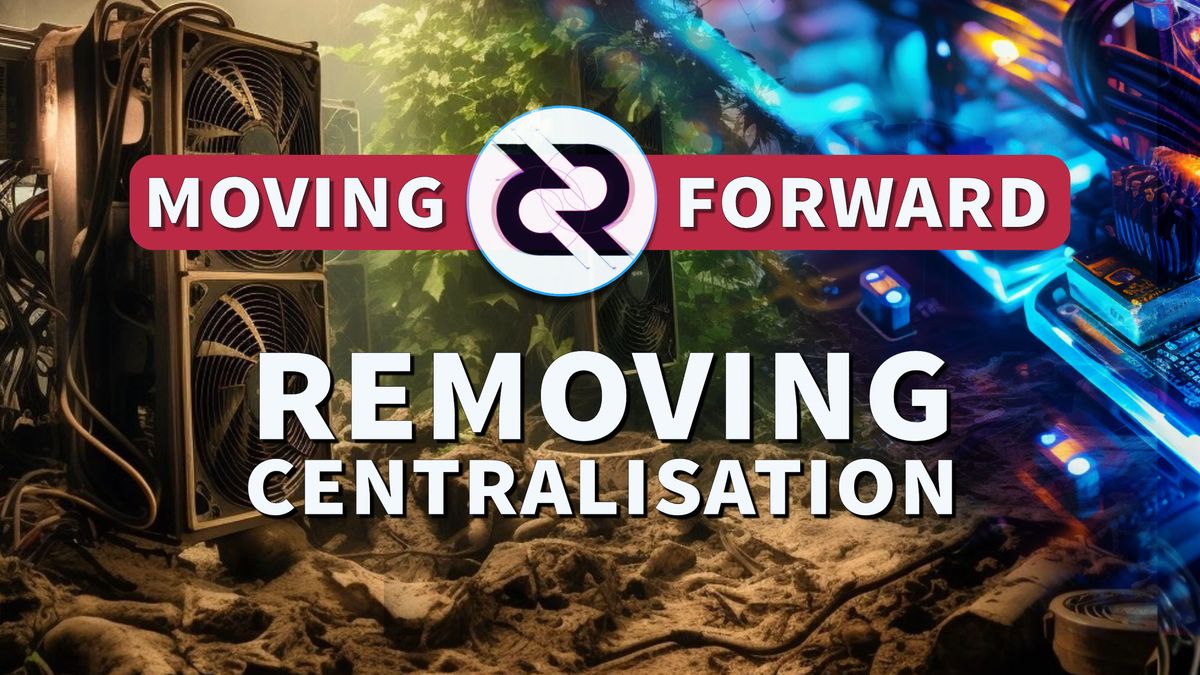
LISTEN TO THE PODCAST:
Crypto is over 14 years old and has seen its fair share of game theory and manipulation play out. Throughout this process, a few obvious centralising entities have fully established, organised and been allowed to thrive. Although early development could never have preemptively solved for each of these entities, it remains important to course correct at every opportunity.
Let’s dive into three of these centralising entities and the efforts Decred has gone to, not only to remove these middlemen, but also to not insert another one in their place.
Mining cartels
As said in the previous video, mining cartels have become a negative aspect for projects looking to thrive. The free money era is gradually coming to an end and, as a result, coin holders are going to need to step up to protect their networks. On the Decred network, over the last two years, changes have been made to remove ASIC hardware and reduce the mining reward down to 1% per block, making it incredibly unprofitable to run large mining operations.
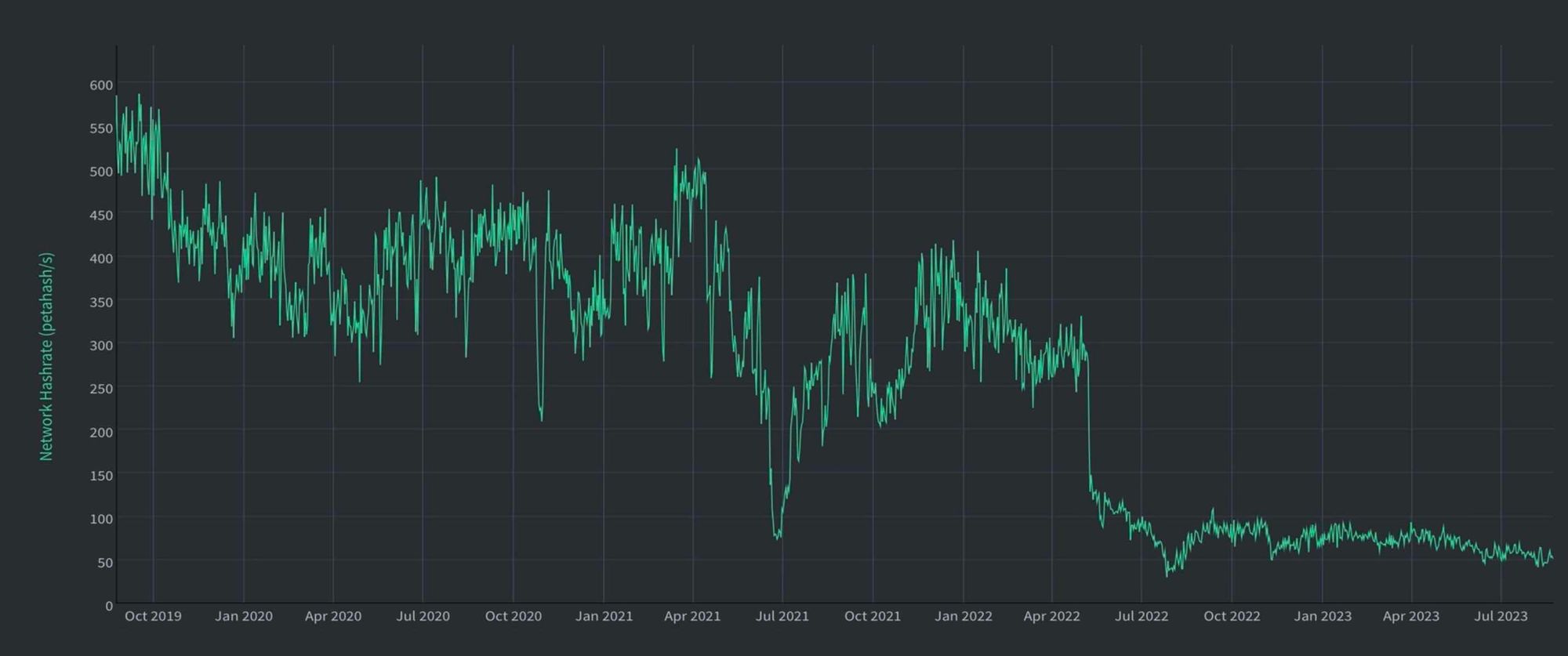
Decred’s mining hash power has reduced to the point where it’s now feasible for independent GPU miners to participate in mining the chain. As said previously, this now means Decred isn’t reliant on specialist hardware or a large centralised entity to keep the chain running. Instead, coin holders are empowered to participate and take ownership of producing blocks and protecting the chain.
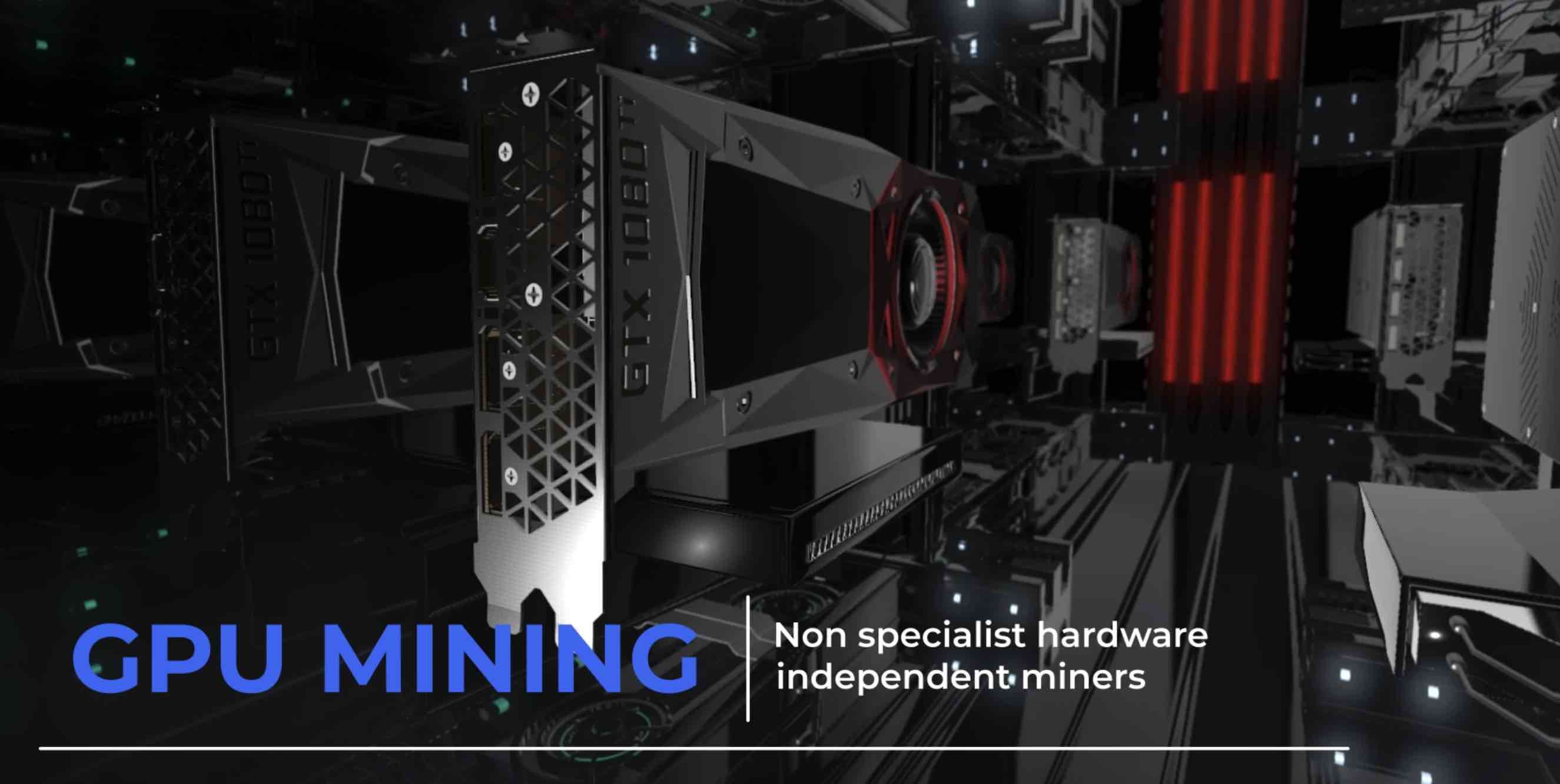
The last two years haven’t been without their pain, but coming out the other side will help insulate us from a range of possible future issues and narratives, including:
- ASIC mining is not environmentally friendly
- Governments shutting down mining farms
- and Miners having a negative impact on the project
- Limited development and supply of specialist hardware
Centralised exchanges
The next centralising element in crypto is the centralised exchange situation. Exchanges have become the gateway and gatekeeper of crypto. Centralised exchanges are huge profit machines for their owner’s, charging multiple fees on each trade and encouraging users to continuously buy and sell in and out of projects.
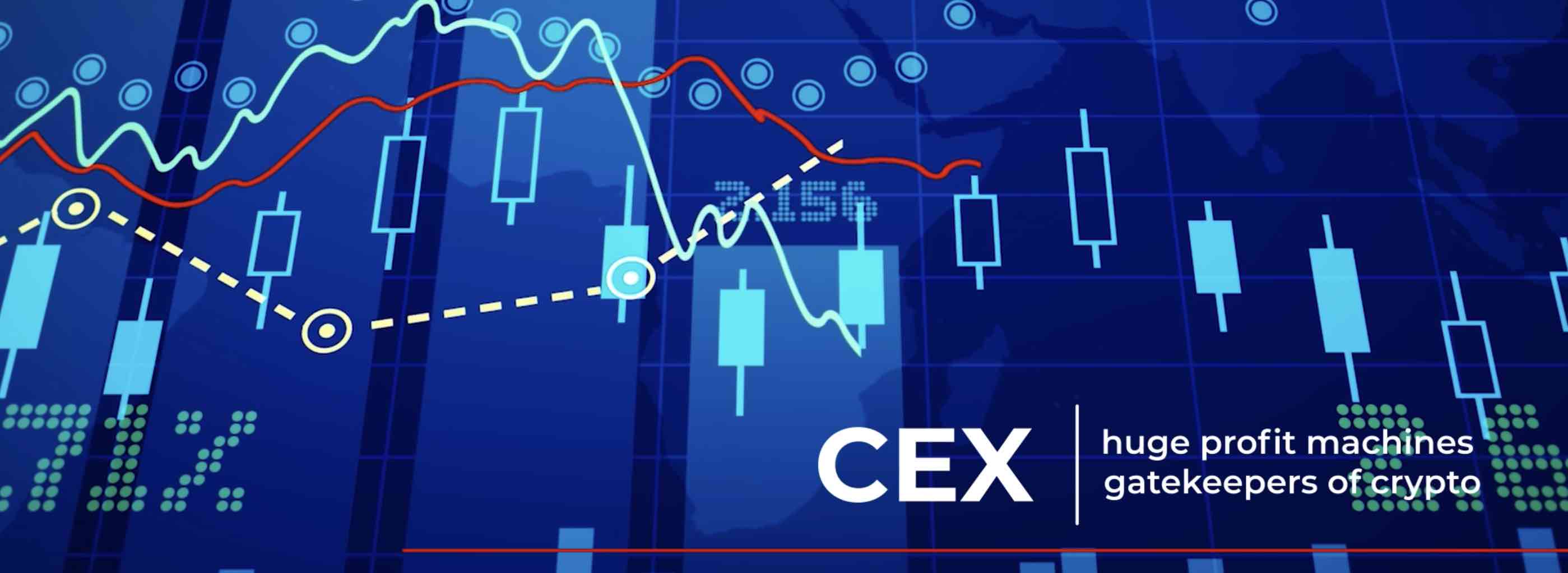
Decred is approaching its 8th year of being an active chain and has proven its worth and values time and again. Yet, you won't find it on the majority of exchanges, the same can also be said for similar noteworthy projects.
Coins and tokens are at the mercy of centralised exchange listings and delisting. It’s not unheard of, for a coin to pay in the millions of dollars for a listing, only to be delisted or limited in scope at some point in the future.
Removing this middle man is incredibly hard to do, as they are fully entrenched in the crypto ecosystem. But if we’re going to be free from centralised entities, and have the ability to trade freely, this is an important step. Remember, the mission is to, remove the middle man, not replace them.
- High fees and costs
- Custody of your coins
- Control listings & delistings
It for this reason, Decred built DCRDEX, the first and, to my knowledge, the only peer to peer exchange. For the past five plus years, Decred has worked diligently on its atomic swap technology to produce an exchange for the entire space.
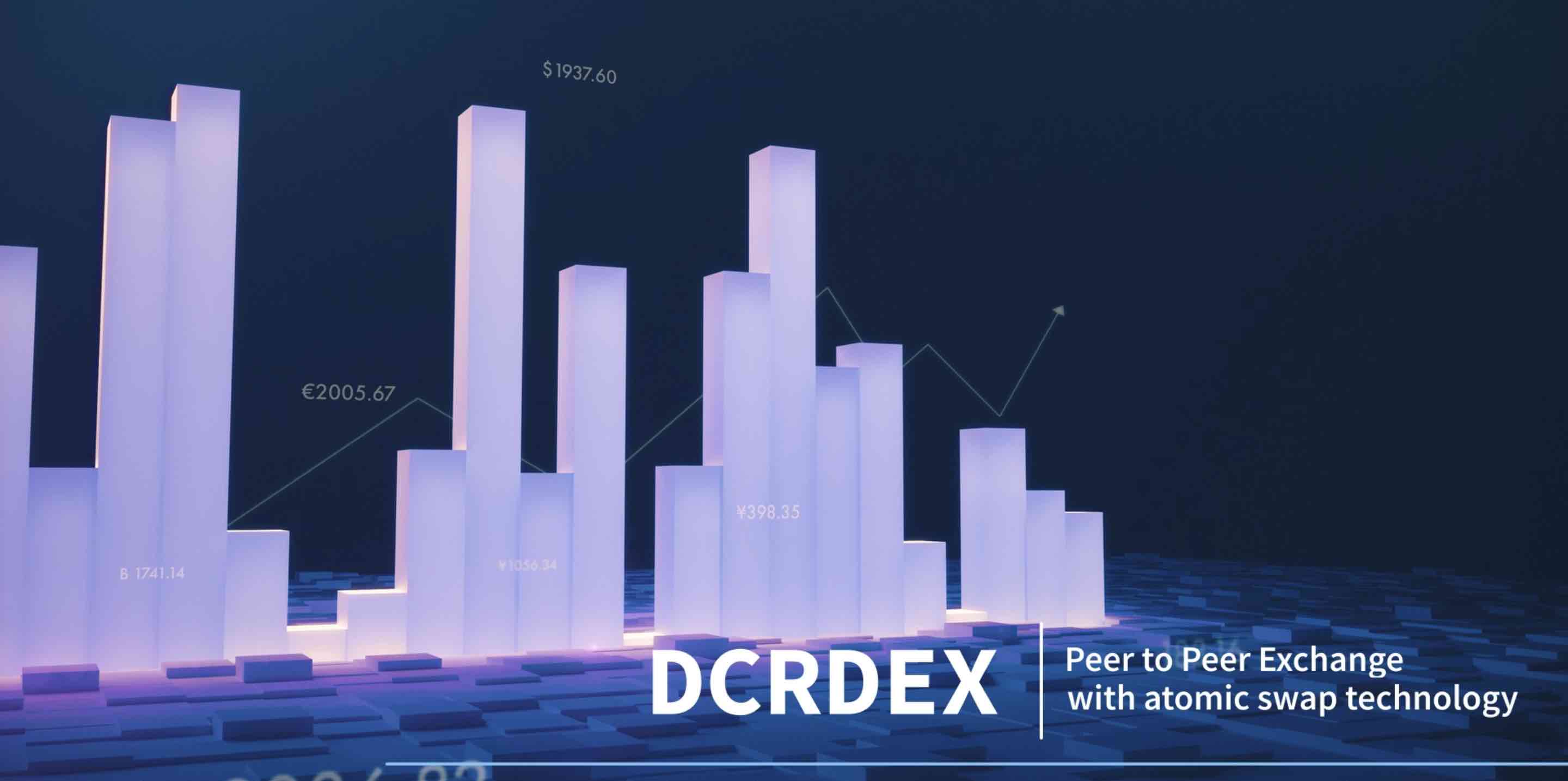
A public good for crypto:
- The software is fully open source
- Any project can be listed without the need for permission
- Anyone can run a swap server and in a future iteration, the mesh network will link all servers and their order books together
- Trades are completed on-chain
- No KYC or accounts of any description
- No trading fees
- No front running
- and all coins are held in your non-custodial wallet, throughout the exchange process. Never leaving your possession.
Centralised Communications
Centralised communications are also a massive issue in every walk of life, not just crypto. Having centralised entities suppress, front run and manipulate a project’s narrative can be extremely destructive. Communications networks and publications acting in their self-interest are extremely detrimental to innovation and give a huge advantage to the highest bidders.
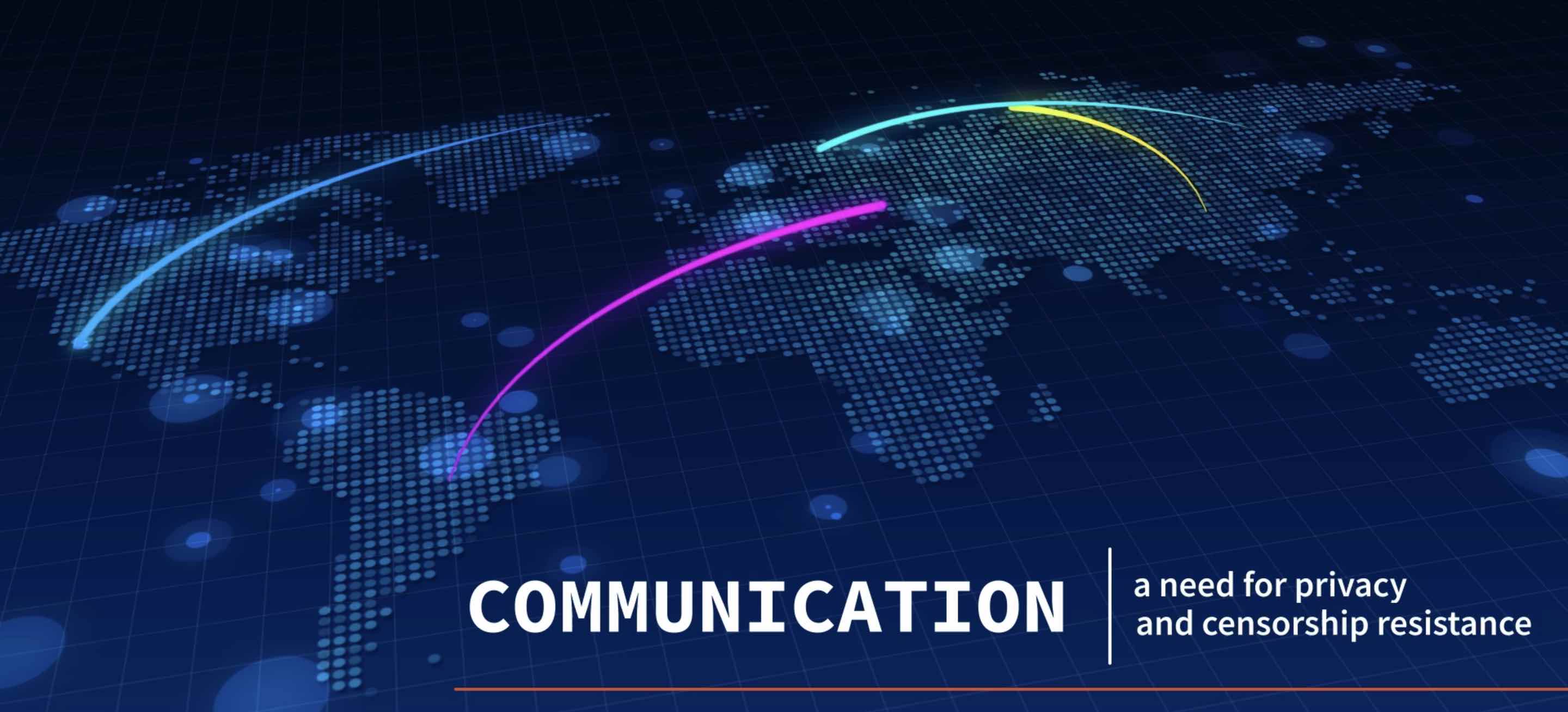
Censorship and narrative suppression is happening in every area of mainstream communication, for instance:
- Crypto news publications are generally paid for, by the products they promote and will ignore or publish hit pieces on projects that offer any kind of competition.
- Mainstream media publications and outlets, on the other hand, tent to only focus on the big projects, Bitcoin, Ethereum etc… or the negative aspects of crypto.
- Social media is generally a mess of meme coins, Ponzi schemes, number go up wannabe professional traders, and misleading information.
For this reason, Decred has built Bison Relay, a privacy preserving, censorship resistant platform for group chats, p2p messaging, and social media news feeds.
Bison Relay also addresses message spam attacks and bot armies by building the platform on the lightning network, where each message costs a micropayment of 1atom (0.00000001 dcr) per byte to send and receive. In its infancy, Bison Relay already provides a pretty impressive system for cheap and efficient payments including tips and purchasing content. And moving forward, the platform is also likely to provide a host of other peer to peer payment services and storefronts.
Although, I could discuss a few other ways in which Decred has developed software to remove centralised entities. These three areas are the most current and demonstrate a commitment to making tough decisions and having the technical ability to successfully follow through.


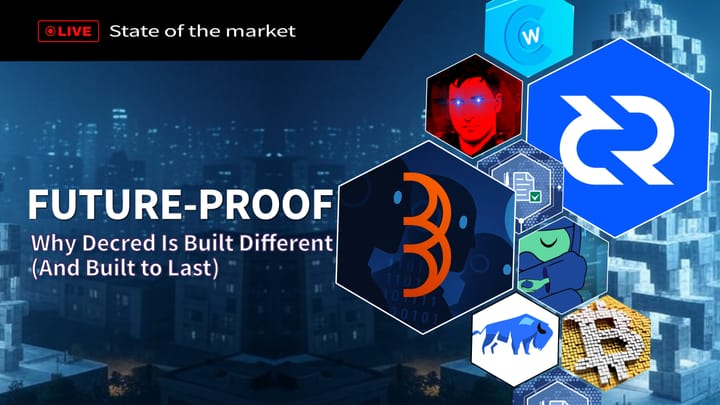
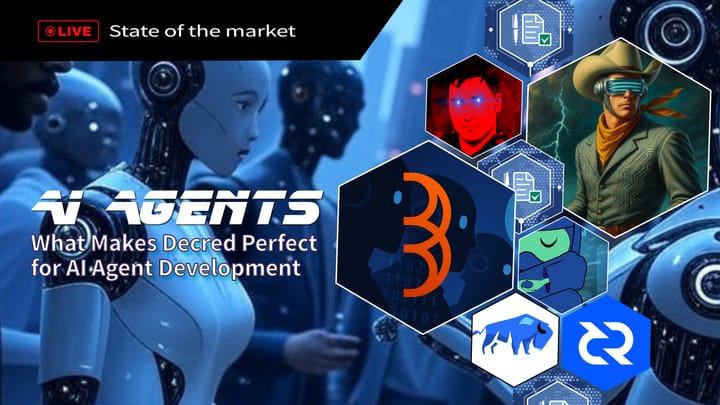
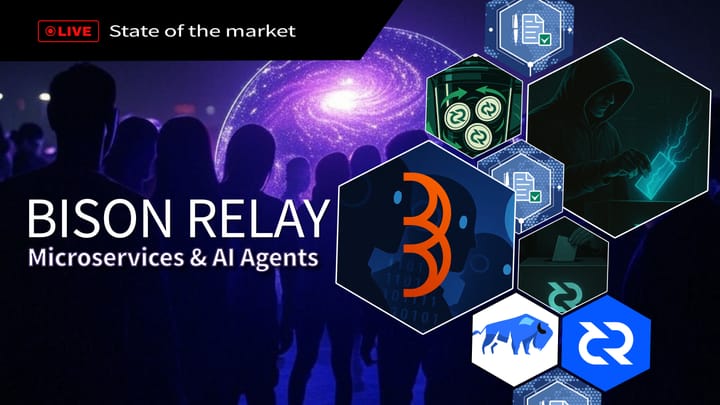
Comments ()